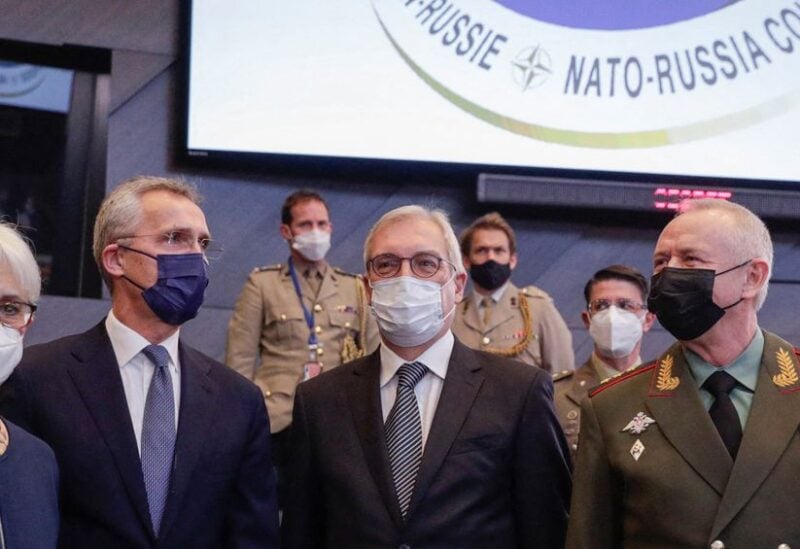
After four hours of meetings in which Moscow urged for security assurances from the West, the chief of NATO indicated on Wednesday that the divisions between Russia and NATO over Ukraine will be tough to resolve.
NATO Secretary-General Jens Stoltenberg told reporters, “There are major disagreements between NATO partners and Russia.”
“Our disagreements will be difficult to resolve, but the fact that all NATO allies and Russia sat down at the same table and discussed substantial issues is a promising beginning.”
Russia has forced the West to the negotiating table by massing some 100,000 troops near the border with Ukraine, a former Soviet republic that aspires to join NATO.
It denies planning to invade but says it needs a series of guarantees for its own security, including a halt to any further NATO expansion and a withdrawal of alliance forces from central and eastern European nations that joined it after the Cold War.
HIGH PRICE
Stoltenberg said any use of Russian force against Ukraine would be a serious political mistake for which Russia would pay a high price.
He reiterated NATO’s position that only Ukraine and NATO can decide whether it becomes a member.
However, Stoltenberg said NATO was ready for further talks with Moscow on issues including arms control and missile deployments. Russia had asked for time to come back with an answer on this, he added.
Russian Deputy Foreign Minister Alexander Grushko, who headed Moscow’s delegation, was due to brief reporters later.
Stoltenberg’s remarks made clear there had been no breakthrough at the talks, which came two days after Russian and U.S. diplomats met in Geneva and reported no narrowing of their differences.
Russia has accused the West of failing to appreciate the urgency of its demands, and said it is not prepared to allow negotiations to drag on indefinitely.
It says NATO’s expansion from 16 members at the end of the Cold War to 30 now – including a large group of ex-communist states in central and eastern Europe – poses a threat to its security and it needs to draw “red lines” now to protect itself.